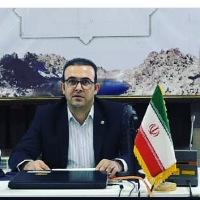Analyzing Environmental Health Components in the Holy Quran Using Shannon Entropy Technique
Environmental health involves the regulation of factors significantly affecting human health, encompassing various diseases transmitted through water, air, food, and other environmental elements. Given its important role, health has always been a primary concern for humanity. Islamic teachings emphasize health and its enhancement even more rigorously than the World Health Organization's charter. This study aims to explore the components of environmental health as depicted in the Quran.
This applied research was conducted in two stages. The first stage employed a qualitative research method (descriptive and analytical) using a triangulation approach to extract and compile data, incorporating Quranic verses, related research, and theoretical foundations. In the second stage, the frequency and importance of environmental health components in the Quran were analyzed using content analysis. Quranic texts and seven primary components of environmental health were examined.
The analysis of environmental health components from the Quran reveals the following frequencies: soil (27), water (22), plants (26), fruits and plants (35), mountains (39), sea (41), and wind (33). Among these, the sea component appears most frequently.
The abundance of components indicates that the sea has the highest importance coefficient (0.183) in terms of environmental health from the Quranic perspective, while water has the lowest importance coefficient (0.098).
-
Identifying and Analyzing the Components of Physical Health from the Perspective of the Qur'an and Hadiths with Shannon Entropy
Adil Hamidvand, Behnam Behari*,
Scientific Journal of School of Public Health and Institute of Public Health Research, -
The Components of Sexual Health from the Perspective of the Qur'an and Hadiths
Adil Hamidvand, Behnam Behari*,
Journal of Pizhuhish dar din va salamat, -
Examining and Applying the Components of Health Listed in the Qur’anic Addresses ”O People” and ”O People Who Believe”
Adil Hamidvand *, , Morteza Golshani Gehraz, Abdollah Asadi, Kazem Moazedi Aali, Seyed Mehdi Hoseeni
Journal of Quran and Medicine,



